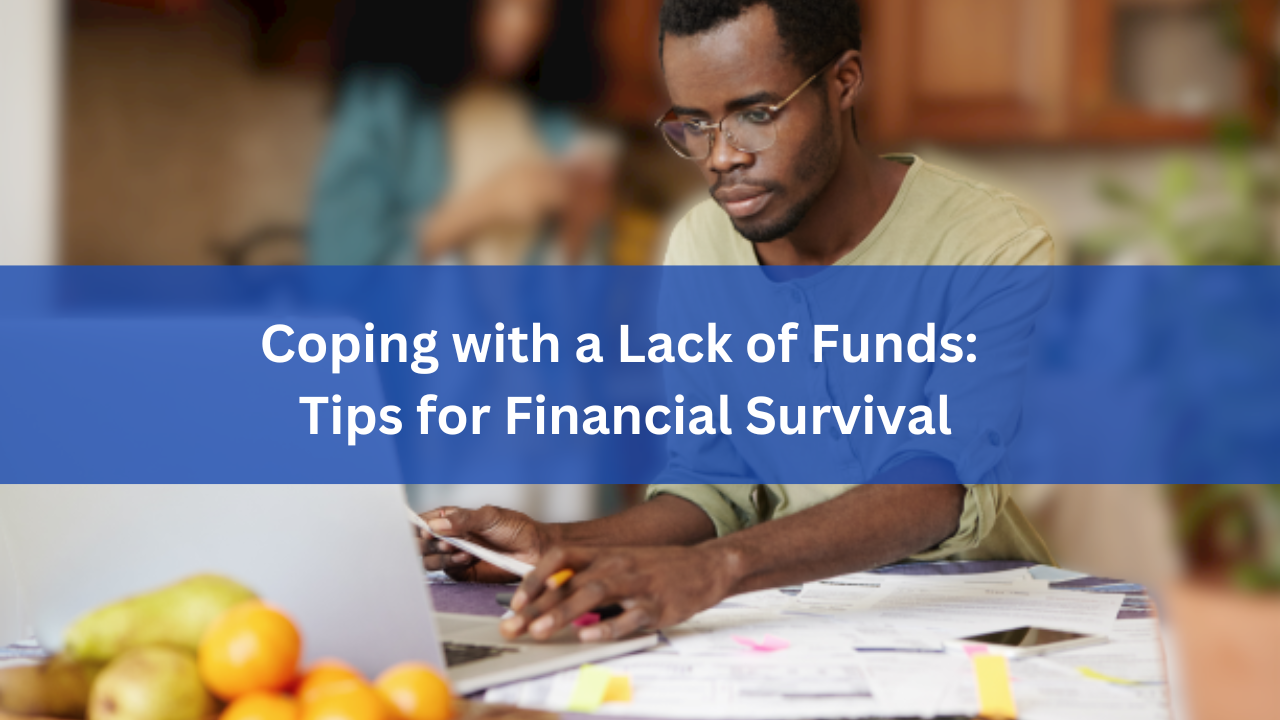
Coping with a Lack of Funds: Tips for Financial Survival
I recall a conversation with a friend who had fallen on hard times. She had moved to a new city to live with a friend but was now struggling to make ends meet. Her job provided a meager income, and with rent due in a few months, she was barely scraping by. Worse still, her relationship with this friend had deteriorated so she needed to rent her own place.
Sadly, this is a common story for many people today.
Life often throws curveballs at us, and we struggle financially. These situations can lead to worrying about how to afford necessities, which is further exacerbated by the current economic uncertainty.
Surviving tough financial times requires careful planning and persistence. As long as you don’t quit and apply the right tips, you can be on your way to better times in a short time.
This article will highlight some tips for coping with a lack of funds.
Assess your situation.
Some financial hardships are self-inflicted, such as investing all of your savings in a Ponzi scheme. Therefore, it's crucial to assess your financial situation and identify the root cause. Ask yourself if your current financial situation is due to any personal fault, such as a wrong investment or a bad habit.
By accurately diagnosing the problem, you can take proactive steps toward finding a solution.

Make a plan to get out of your current situation.
Take where you are as "point A." Think of a better place in the near future where you are more comfortable financially, and call this ‘point B. Now, think of the steps you need to take to get from point A to point B.
Write these down.
You can do this with a family member, partner, friend, or professional. This plan should be as actionable as possible and not based on vague dreams or lofty ambitions. Remember, your immediate goal is to move from a financial lack to a more comfortable phase.

Talk to someone
Lack of funds can easily devolve into financial stress. but don't let it overwhelm you. Seek support from someone, like a partner or mentor, who can provide insights on your next steps. Emotional support is just as important during these trying times.
Don't hesitate to pick up the phone and reach out to someone you trust, whether it's your parents, a friend, or a partner. They may not have all the solutions in the world, but knowing that someone will listen goes a long way.
Make a budget.
Creating a budget is a crucial tool to help manage your finances in good and bad times. It's a non-negotiable step if you want to take your financial life more seriously and improve your situation.
Start by creating a basic budget that outlines your income and expenses. This will help you plan your finances more effectively in line with the steps outlined in your plan to get out of a financial rut.
Budgeting can also help you identify areas where you may be overspending and need to adjust.
Go frugal and prioritize yours.
To weather tough financial times, it's essential to prioritize your spending and adopt a frugal lifestyle. Cut down on non-essential expenses and focus only on the bare necessities.
Explore new ways to save money and make every kobo count.
For example, you could carpool or use public transport, switch to cheaper alternatives for items you usually buy, and so on. Another great idea is to open a bank account only for essential expenses.

The Mkobobank account comes with zero hidden fees and is a digital-friendly bank that allows you to easily track inflows and outflows.
Remember, being frugal is not just a lifestyle choice; it can also become necessary during challenging financial times. By prioritizing your expenses and being mindful of your spending, you can help ensure financial stability and resilience.
Get a new job or add a side hustle.
I know a friend who, after losing his job, immediately joined as a part-time driver for a ride-hailing company. After expenses, he earns N20,000 per day on average.
In the case of job loss or an underpaid job, consider getting a side hustle or applying for better-paying jobs. The growing gig economy means that with the right skill, diligence, and persistence, you can make money from a side hustle.
You can consider driving for ride-hailing companies, dropshipping, messenger services, home cleaning services, or online freelance work such as writing and virtual assistant services.
Seek professional help.
Where possible, or if you can afford it, seek professional help. A professional will be able to assess your financial health and provide advice on how to rebound from your current state.

Like the proverbial "light at the end of the tunnel," you can always arrive at better days after going through financial hardship. Tough financial times can easily strain health, relationships, work-life balance, and everything in between.
Being deliberate and taking actionable, well-thought-out steps can make a difference on your path to financial comfort.